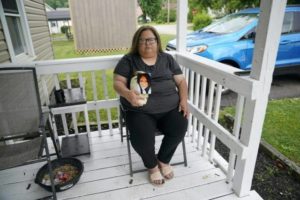
Family
Should 911 Operators Be Penalized for Being Negligent?
Should 911 dispatchers who endanger people’s face criminal or civil charges? This question is becoming more common as family’s and the public examine how and why people are dying after calling 911 beforehand.
On July 1, 2020, a 911 dispatcher named Leon “Lee” Price in Pennsylvania received a call from Kelly Titchenell, who was frantically driving to see her mother, Diania Kronk, who was suffering from a hole in her esophagus. Titchenell had told Price that if she wasn’t taken to the hospital soon, she would die, and that he needed to send an ambulance.
Price, in response, told Titchenell that he couldn’t send an ambulance unless it was assured that Kronk would be willing to go into the vehicle without resistance. He instructed Titchenell to call 911 again when she was at her mother’s side, but Titchenell was unable to do so because her mother’s neighborhood lacked cell service and a landline couldn’t be found. Kronk died a day afterwards from internal bleeding.
Avenging a Mother
Titchenell believes that if her mother had been given an ambulance, she could have survived. Two years after Kronk’s death, a detective in Greene County has filed charges against Price for involuntary manslaughter, reckless endangerment, and official oppression and obstruction. Price also faces a lawsuit against Titchenell herself on the behalf of her mother’s estate. He was arraigned in court on June 29, 2022 and released for a $15,000 bail.
Price is not the only 911 dispatcher who has endangered people’s lives by neglecting to send out help when they’re asked to. Criminal charges against them are rare but have happened, according to John Kelly, a lawyer who serves as counsel to the National Emergency Number Association.

Kelly Titchenell sits on her porch in Mather, PA., holding a photo of her mother Diania Kronk, and an urn containing her mother’s ashes, Thursday, July 7, 2022. A Greene County, PA., detective last week filed charges against 911 operator Leon “Lee” Price, 50, of Waynesburg, in the July 2020 death of Diania Kronk, 54, based on Price’s reluctance to dispatch help without getting more assurance that Kronk would actually go to the hospital. (AP Photo/Gene J. Puskar)
Improper Protocol
Titchenell feels incredulous that her mother, who was yellow from jaundice and unable to speak, was refused an ambulance. There were three ambulances available to dispatch when Titchenell called Price. Dave Russo, district attorney of Greene County, believes that Price had violated protocol and the procedures of the district by denying Kronk medical service. Russo wishes to investigate further into this particular case to see if Greene County’s 911 management services also hold responsibility for Kronk’s death.
“I want to know why this happened in my county,” Russo said during an interview with KDKA News. “I want to know why medical services weren’t provided. I want to know if there was an informal policy that’s outside of the actual procedures.”
A Record of Neglect
Price is far from the first 911 dispatcher to be accused of involuntary manslaughter. A dispatcher in Arkansas received many harassing phone calls after she was perceived to be the one at fault for a woman’s drowning in a flash flood. She had been rude and caustic towards the woman in a way that violated her department’s policy but did not break any law as she allegedly did her best to send first-responders to the woman’s location. Because of that, no criminal charges were filed against her. Of course, many people still passionately feel that the dispatcher was in the wrong, to the point where there is an active petition on change.org to put her in prison.
During the Buffalo mass shooting on May 14, a 911 dispatcher “yelled” an employee, Latisha Rogers, for whispering into the phone while Rogers was trapped inside Tops supermarket trying not to draw attention to herself as a white supremacist gunman roamed the store. After eight years of employment, the dispatcher, Sheila E. Ayers, was fired for improper conduct and lack of protocol.
Never Letting This Happen Again
When people call 911, they are likely in great distress, and to hear the voice on the other end of the line be condescending or apathetic is extremely demoralizing for them. This was exactly how Titchenell felt after being told that she should hang up on 911 and try again later.
“I pretty much begged him. And I told him she was going to die if she didn’t get help. And he told me to call back after I got there. I told him there was no service and why would I call back if he didn’t want to send an ambulance the first time?” Titchenell recalled in an interview conducted by the Associated Press.
Having waited two years in order to get justice for her mother, Titchenell hopes that her lawsuit against Price will prevent another tragedy like hers from happening to any other family. “This should have never happened and I don’t want it to ever happen again to another family. Nobody should ever have to go through this. And I want him to be held accountable.”
According to her obituary, Kronk worked as a home health aid for Don’s services, loved cooking and the Pittsburgh Steelers, and is survived by three children and five grandchildren. She is remembered by her daughter as warm and possessing a large heart.









0 comments